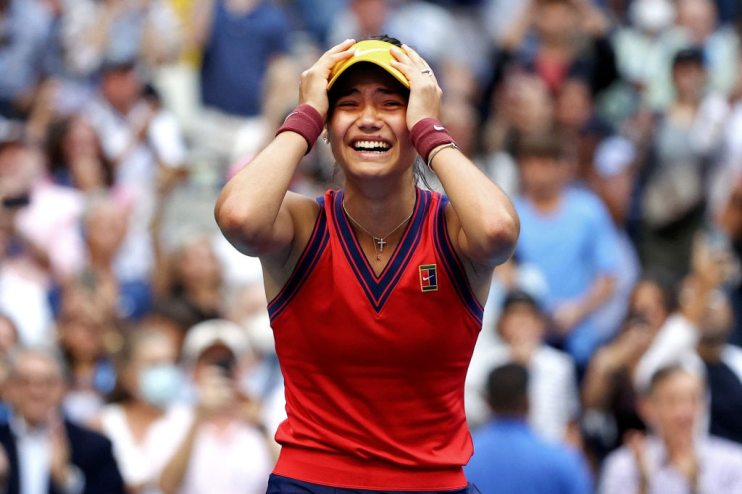Emma Raducanu’s success shouldn’t be measured in dollars but in her cultural impact way beyond tennis

There are two stories written when any sports star bursts on the scene in the way that Emma Raducanu has this summer.
The first is about how much money they’ll earn and the second surrounds the number of people who will immediately take up the sport because of it.
Both narratives are overly simplistic for different reasons. Distilling Raducanu’s sporting achievement to monetary gain – and let’s face, it we’re not just talking about her earning potential but that of the executives currently circling – is crass, reductive and sidelines the conversation that we should be having.
As Nelson Mandela said: “Sport has the power to change the world. It has the power to inspire. It has the power to unite people in a way that little else does. It speaks to youth in a language they understand.” Note the exclusion of “and they will earn a truck load of money”!
There is no doubt that Emma will inspire boys and girls to play tennis, but one player is not a panacea for ensuring the next generation pick up a racket. That responsibility doesn’t and shouldn’t lie with her, an issue Andy Murray has previously taken British tennis bosses to task over.
Turning inspiration into a participation reality is more than a single role model alone can achieve. It’s a complicated matter that has far reaching implications into government funding and long-term strategy.
In 2019 the Lawn Tennis Association released a five-year strategy for the Tennis Opened Up initiative, recognising the view of many that tennis is closed to them, whilst needing to compete for people’s time with literally hundreds of other activities.
Accessibility is vital, and the LTA has worked hard over the last few years to enable this, with programmes to mobilise people from all backgrounds to access tennis in an affordable way. There is still more work to be done in this space to ensure a tailored inclusive experience for all abilities, genders and backgrounds at the entry point.
Without doubt Emma Raducanu just became a highly prized piece in the puzzle, but, unlike the US Open, she isn’t a trophy or a symbol and will need a clear role in the aforementioned strategy to support the change taking place in tennis.
Brands’ opportunity lies in aligning with Raducanu’s passions
Yes, Emma Raducanu will earn money, but what’s more likely to be on her mind, as with so many other young athletes, is the ability to embrace her own values for good, and brands are increasingly looking to sport as a way to help shape the society future generations strive for. Win-win.
In new research commissioned by The Space Between comparing the attitudes and behaviours of fans of women’s sport with men’s sport, the role of brands in the lives of women’s sports fans and their desire for them to positively impact society is particularly marked.
Fans of women’s sport are twice as likely to be values-driven and place higher expectations on brand sponsors than fans of men’s sport. Women’s sport fans are more likely to expect brands to address societal issues of gender equality, environment, health and wellbeing and sustainability compared to fans of men’s sport.
The numbers are stark: 86 per cent of women’s sport fans believe it is important for brands to address diversity and inclusion versus only 57 per cent of men’s sport fans; 93 per cent of women’s sport fans believe it is important that brands address society’s health and wellbeing and 90 per cent want brands to actively address environmental issues.

The added benefit is that women’s sports fans are also a third more likely to recall and buy the brands they see associated with the sports they follow.
This dual nature of the attitudes and behaviours of women’s sports fans suggest that brands have an enormous opportunity to work most successfully with Emma if they align with her passions to make a difference – whether that be to tennis or society or both – and build affinity with a more progressive set of fans who are looking for purposeful, meaningful partnerships to enact change.
That change won’t be measured by the size of her pay cheque, but by her cultural impact way beyond the tramlines of tennis.
Lisa Parfitt is co-founder of The Space Between, a new sports marketing agency to help businesses make the most of today’s disrupted sports landscape to meaningfully connect with customers. www.spacebetweenagency.com